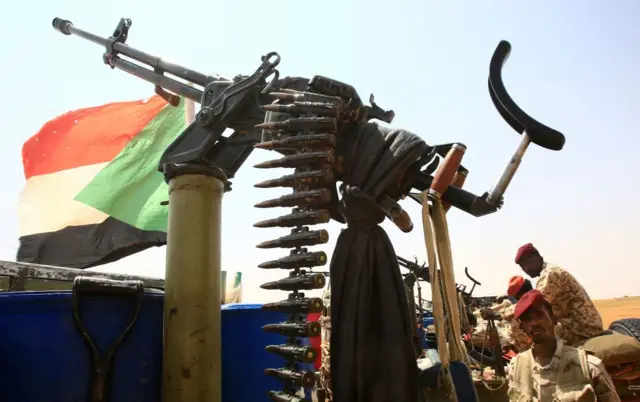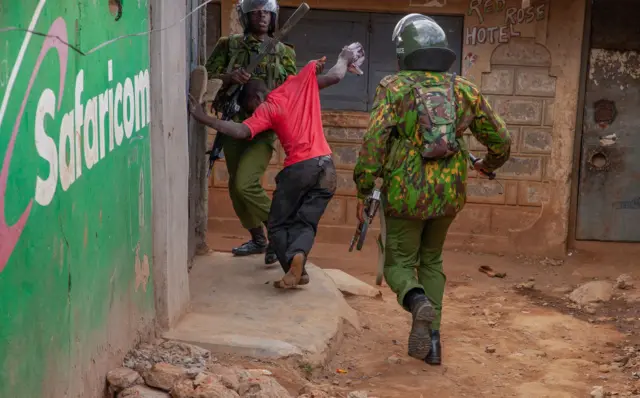Sudan begins talks to bring army factions togetherpublished at 06:04 BST 27 March 2023
 The Newsroom
The Newsroom
BBC World Service
 Image source, AFP
Image source, AFPThe talks were part of an agreement to bring RSF militia under army control
Military and civilian political leaders in Sudan have begun talks in Khartoum on bringing the government-backed militia, the RSF, under the control of the army.
This, and placing the military under civilian authority, were key demands of the civilian groups which helped overthrow President Omar al- Bashir in 2019.
Sunday's talks were part of an agreement, signed in December, meant to pave the way for a return to democratic rule and due to be adopted formally in less than two weeks.
The army chief, Abdel Fattah al- Burhan, who seized power in a coup two years ago said he wanted to put an end to the armed forces supporting dictatorial governments in Sudan.
